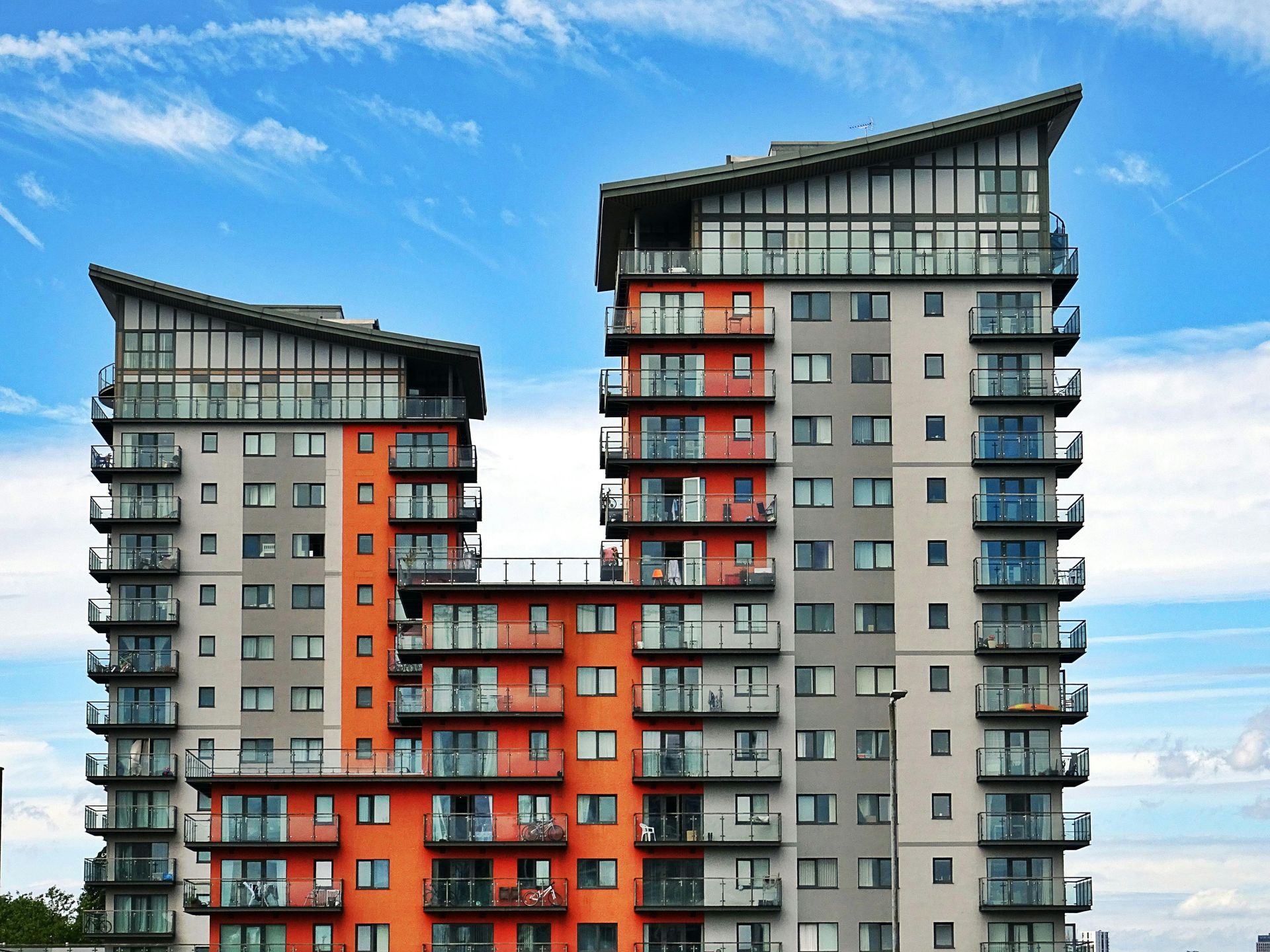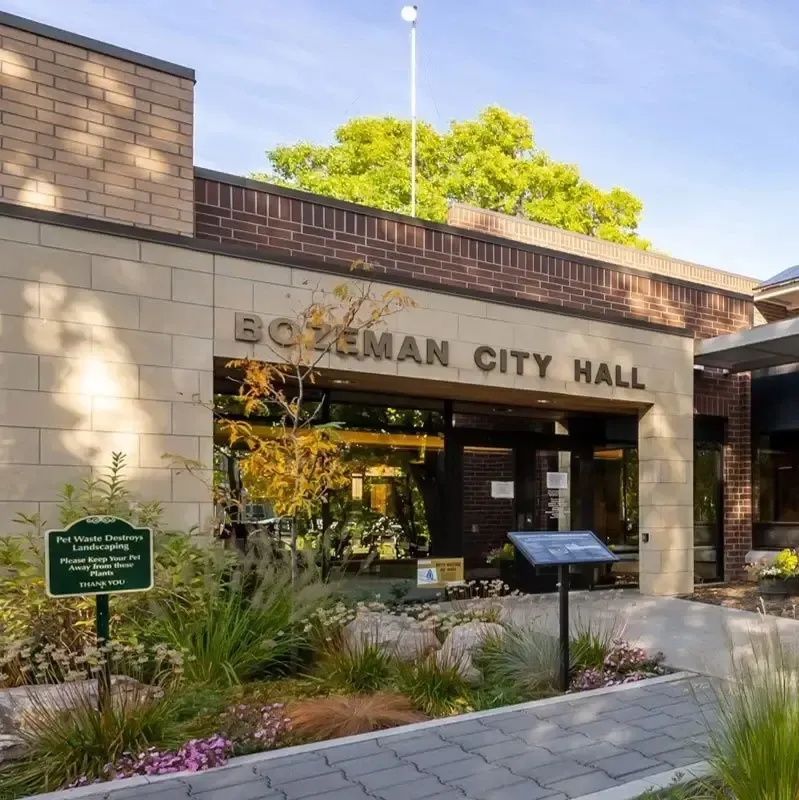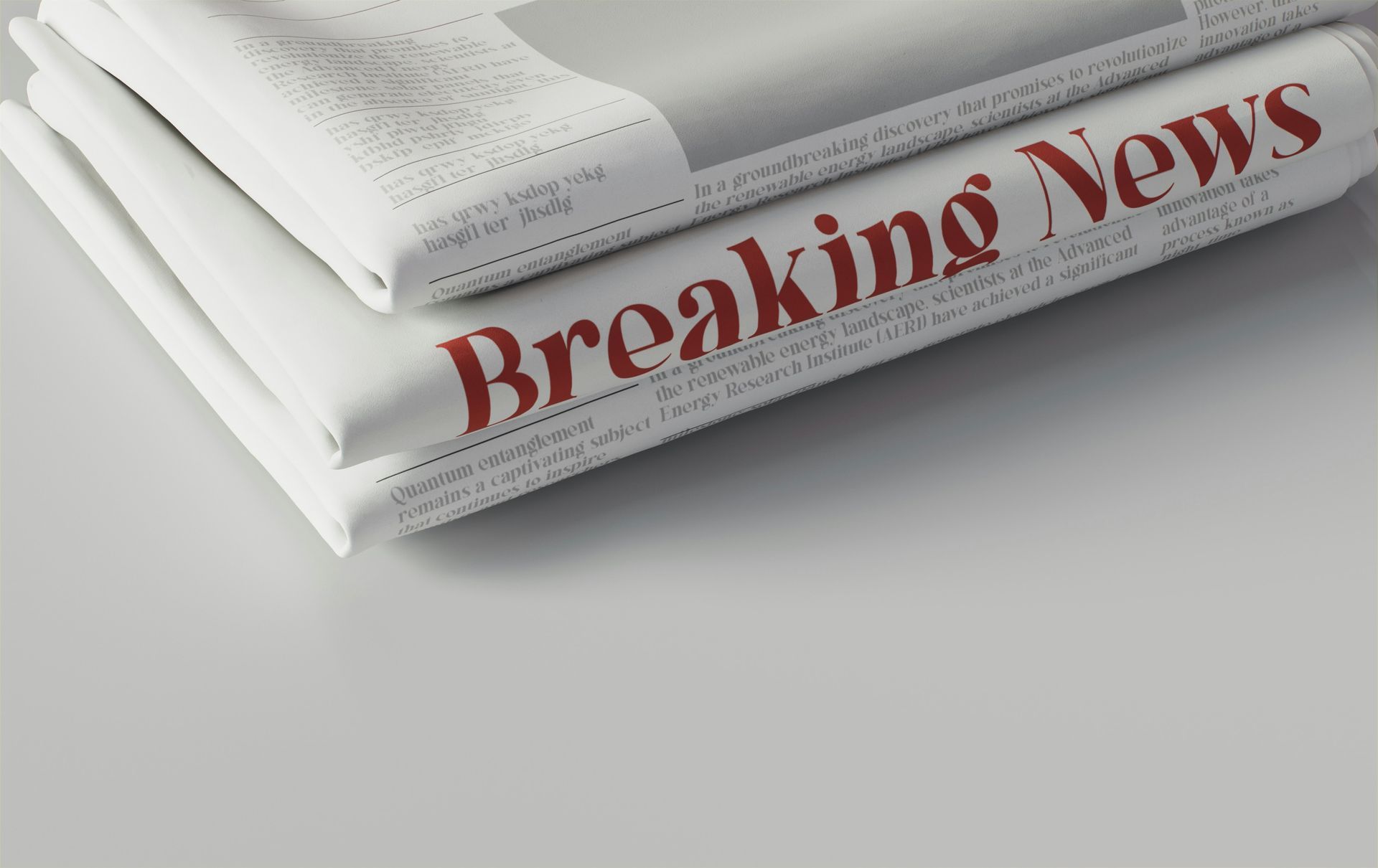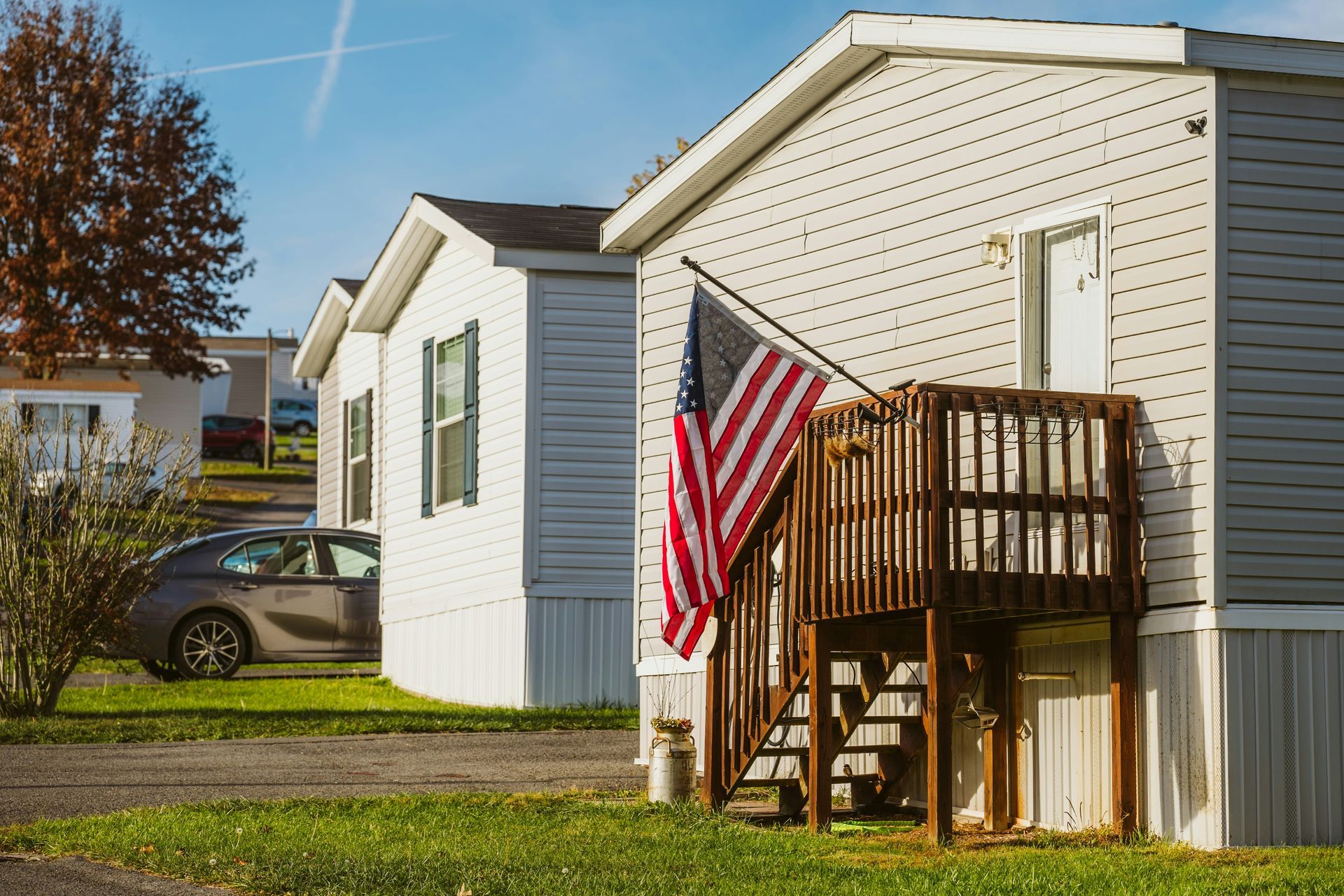
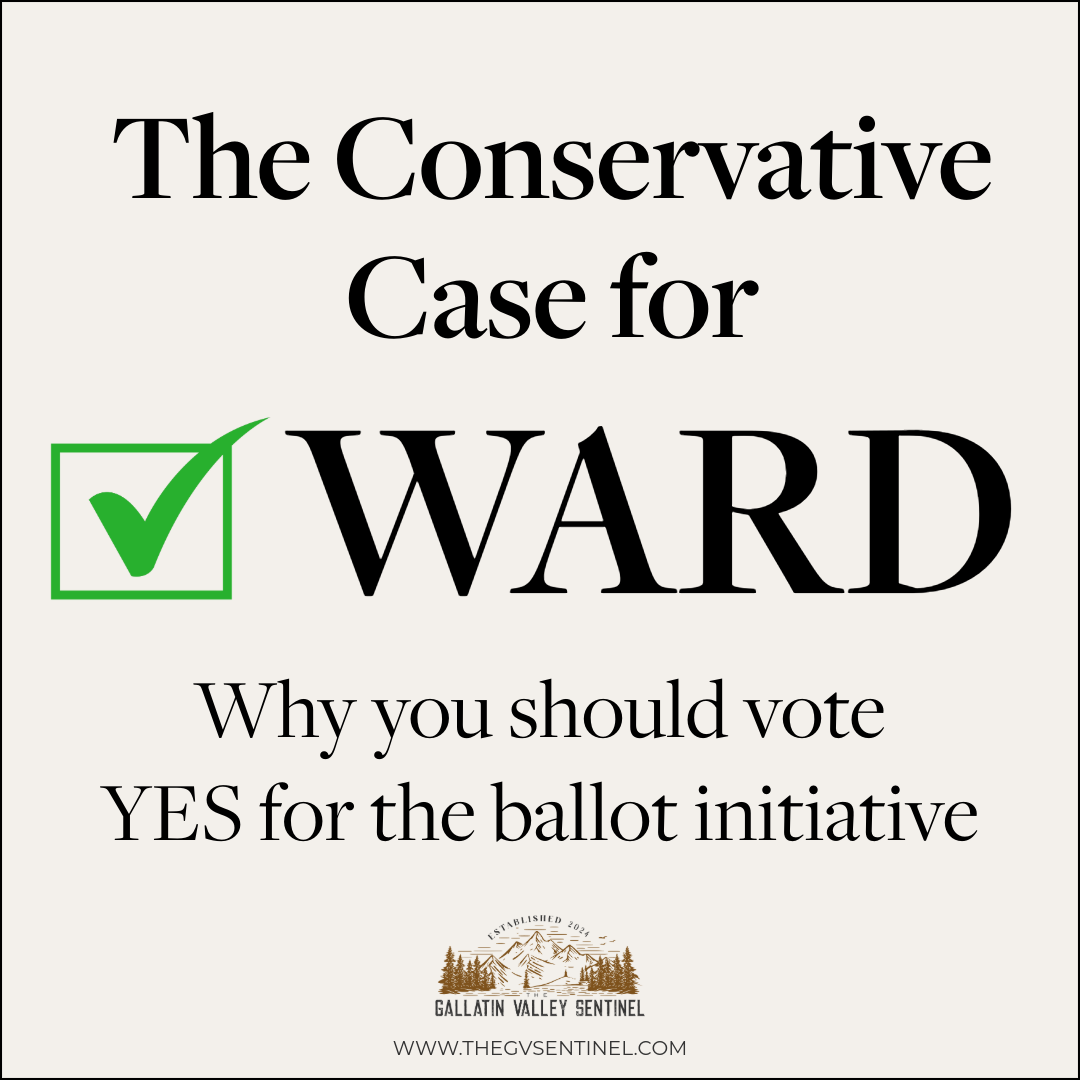
“ … What is happening now is that taxpayers are subsidizing huge developments that are neither needed nor desired by most residents ... So many reasons to repudiate the commission decisions of the last ten years. Start with passing Ward and voting for non socialist commissioners."
- Jeff Krauss, Former Mayor of Bozeman
The Conservative Case for WARD
Decisions have consequences, and that is part of the reason why we believe you should vote “yes” on WARD.
A “yes” vote on WARD is your power to say to the leadership of the City of Bozeman that you are no longer buying their “build, build, build,” “density and infill,” “anti-car,” and “build now, plan later” approach to managing growth and hoping that “if we just build enough apartments, prices will go down.”
If WARD passes, it will go into effect for a period of only two years, after which it can be repealed. What these two years would do is buy time to force a necessary conversation - a chance for Bozeman to catch its breath and demand accountability from a City Commission that has been sprinting ahead without a coherent plan.
For years, this Commission has treated growth like an inevitability rather than a choice. They’ve rushed to upzone neighborhoods, rubber-stamp high-density projects, and ignore the mounting pressure on our water and sewer system, roads, and public safety. All the while, they’ve clung to an outdated Community Plan (Growth Policy) that was never designed to handle the explosive population and development patterns that emerged after its adoption in 2020. Instead of updating the foundational document first, they’ve doubled down in a “build first, figure it out later,” philosophy.
Now, under the latest draft of the Unified Development Code (UDC), they’re proposing even more upzoning, removing protections for existing neighborhoods and encouraging blocks of multi-story apartment buildings in areas that were once planned for single-family homes. This is not responsible planning. It is reactionary policy driven by ideology and pressure from developers and activist groups.
A “Yes” vote on WARD says, enough. It’s a statement that Bozeman residents want the City to slow down, reassess, and make sure that we have the water, infrastructure, public safety, and community input to support the kind of growth we actually want, not just the kind that developers profit from.
WARD doesn’t stop growth forever; it simply restores balance and foresight to a process that has lost both. These two years would allow the city to finally align its Growth Policy, water and infrastructure planning, and zoning map, so that if growth resumes, it is sustainable, transparent, and in the public’s interest.
Opponents like to claim that WARD somehow “infringes on property rights.” That’s a talking point straight from the development lobby. WARD doesn’t take away anyone’s rights - it defends yours. It protects existing homeowners, taxpayers, and neighborhoods from being forced to subsidize growth that outpaces our city’s capacity to serve it.
Property rights don’t include the right to overload city infrastructure or to drain the aquifer with endless growth. Every property owner already accepts reasonable limits such as setbacks, fire codes, and zoning. WARD is no different.
The real infringement on property rights is what’s happening now: the city’s relentless push to upzone neighborhoods, inflate density, and shift the costs of new growth onto existing residents. WARD restores balance. It’s not anti-growth. It’s pro-accountability, pro-stewardship, and pro-Bozeman.
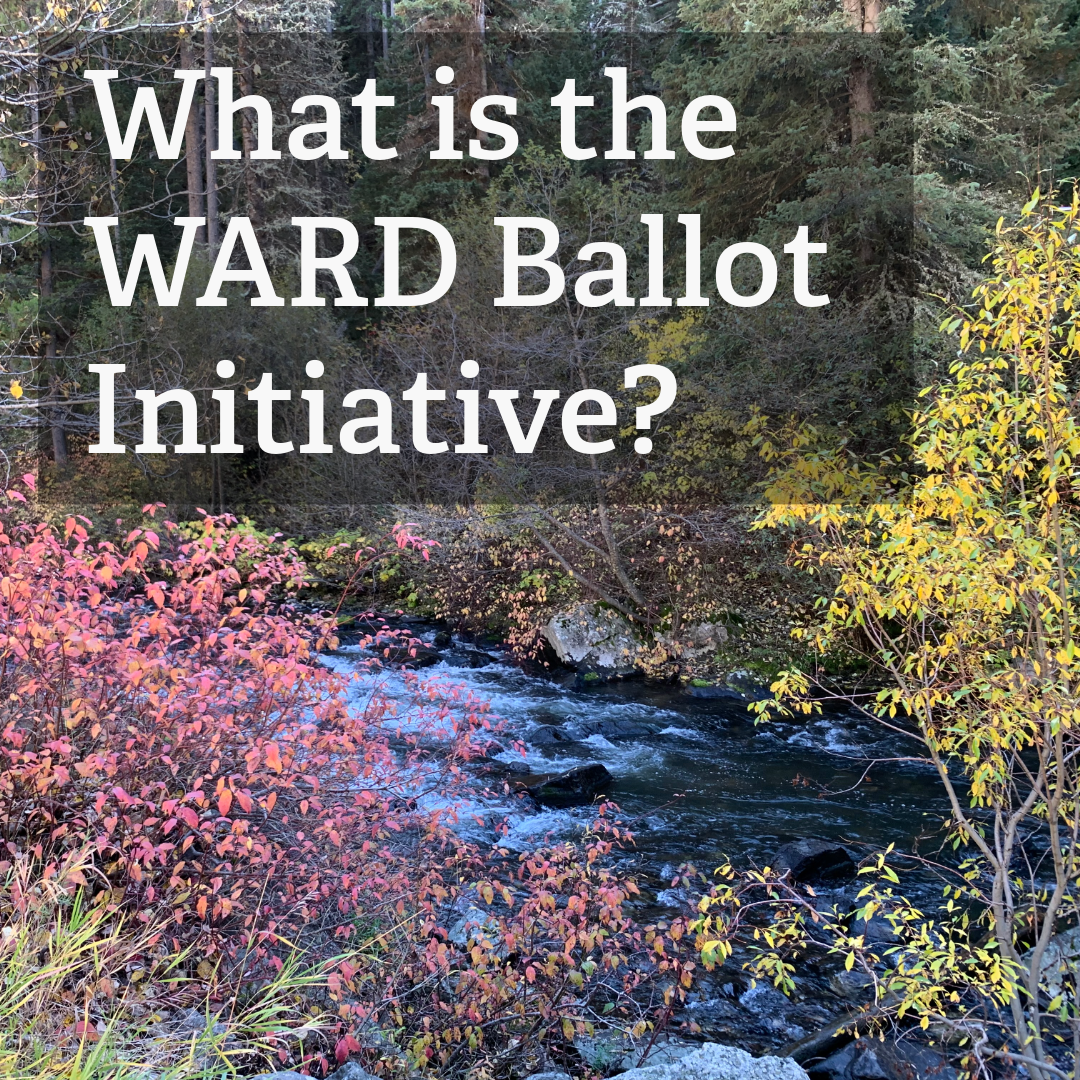
Click below to listen to the City of Bozeman’s educational presentation and answers to some of the questions that were sent in.
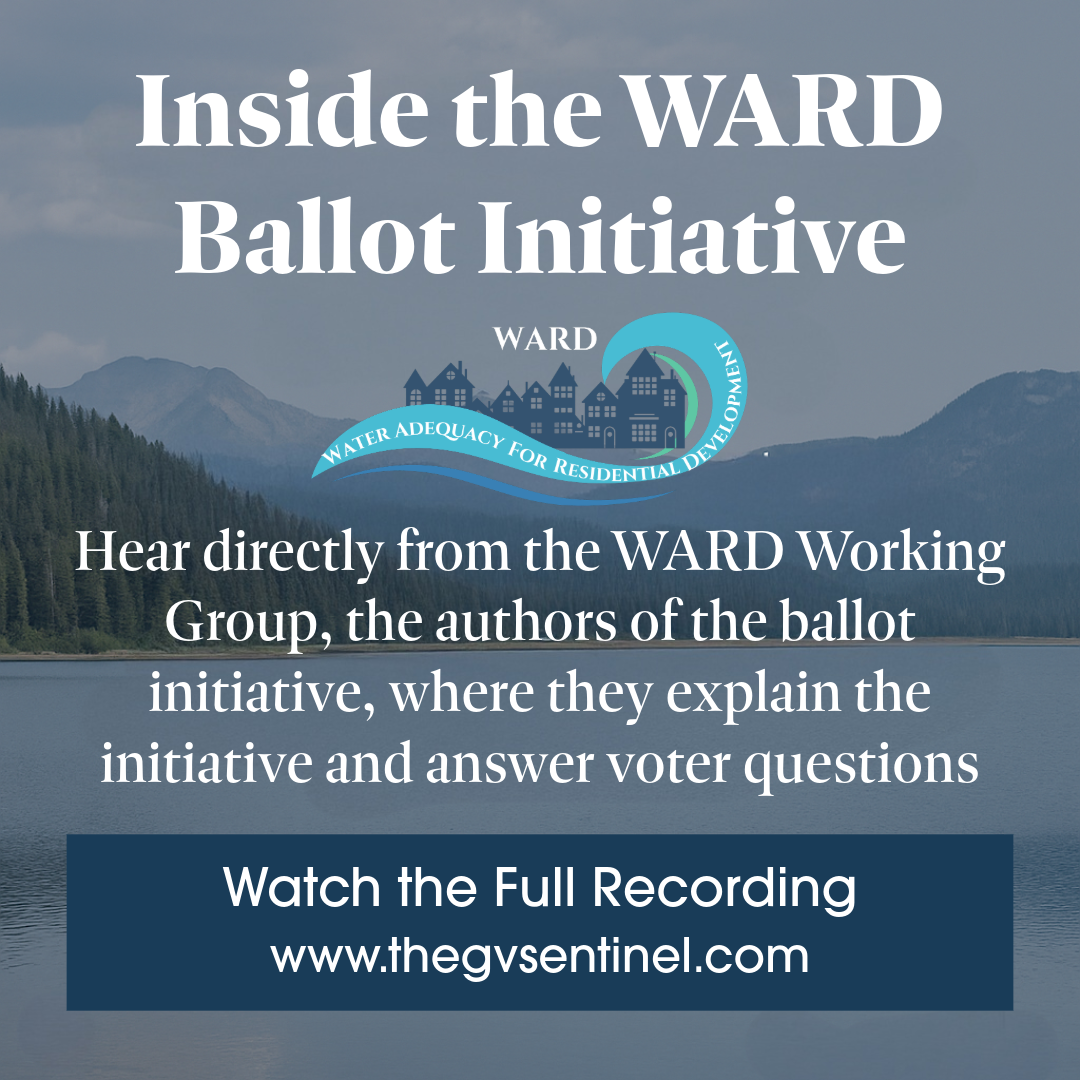
Click below to listen to the WARD Working Group’s presentation and answers your questions.
WARD Initiative - "No" Arguments
(Info from Forward Montana)
Forward Montana’s housing program is grounded in affordability, sustainability, and resiliency, and envisions a Bozeman where young people can both live and work. WARD threatens that vision.
So WTF is the WARD Ballot Initiative?
The WARD ballot initiative, short for Water Adequacy for Residential Development, proposes a change to the Bozeman Municipal Code. If this initiative passes, residential developers (building 3 or more units) can only use the cash-in-lieu option for water rights (i.e., paying the city instead of supplying new water) if at least 33% of their new units are designated as affordable.
- A no vote on WARD means you oppose the proposed changes to municipal code and support additional housing development in Bozeman.
- A yes vote means you support amending municipal code and support the WARD initiatives’ limitations on access to water rights
WARD claims to create affordable housing and conserve water in Bozeman, however it will actually do the opposite: threaten the affordable housing progress our community has already made. Ward will:
- Drive up costs by substantially limiting new homes within Bozeman’s city limits
- Increase urban sprawl accelerating the consumption of important wildlife corridors, drive up carbon emissions and the taxes we pay for infrastructure.
- Rely more on inefficient county water systems that waste water and leak excess nutrients and toxins into our aquifers.
Forward Montana does not endorse the WARD ballot initiative and encourages you to vote NO on WARD
Why will WARD make housing more expensive?
- We want 33% of new development to be permanently affordable– just like the WARD initiative claims to create. But WARD won’t get us there. The reality is that development in Bozeman will slow or stop because developments.
- An unattainable amount of subsidies will be needed to make most projects happen at those levels of affordability.
- To dig a little deeper, if the rent payments cannot make up the monthly payments for the cost of building new housing (land, labor, lumber, laws, and loans), anyone who builds housing would lose money on that project. There are not reliable sources of funding to bridge that gap for most builders.
- Since WARD suggests no funding mechanisms, funding for any project would have to come from even higher rents on the other 66% of the units, city dollars, philanthropic donations, or other funding sources.
- Many developers will likely forgo the unrealistic restrictions by building in the county, halting development in Bozeman and accelerating sprawl.
Resource from city: https://legistarweb-production.s3.amazonaws.com/uploads/attachment/pdf/3616783/233073-Water_Ballot_Initiative_Slidedeck_9-16-25.pdf
Why do we need continued development in Bozeman?
Continued housing development within City limits is crucial to creating a steady supply of homes, which prevents the cost of homes and rent from skyrocketing. Right now, Bozeman’s 12% vacancy rate suggests an oversupply, and the average rent has gone down $346 dollars in the last year! This is directly related to the increase of supply. If we do not plan for the future and do not keep up building, Bozeman’s housing market is expected to absorb this oversupply and leave us back to the inflated prices seen in 2020-2022 (when rents were raised every year!). Restricting building within the City inherently forces any development to sprawl out into the county and surrounding valley. Sprawl increases infrastructure costs and taxes, strains affordability inside Bozeman, increases commuting, consumes surrounding open spaces, and degrades water quality.
Why WARD will be harmful for water and the environment:
- Restricting building within the City accelerates sprawl out into the county and surrounding valley.
- Sprawl…
- Puts more homes in the county, which relies mostly on well and septic tank systems that will use more water than development in Bozeman and leak excess nutrients and toxins into our water shed.
- Consumes open lands that serve as vital wildlife corridors from the Greater Yellowstone Ecosystem
- Increases car dependency, commute time, human wildlife collisions, and carbon emissions.
- Requires more paved roads, road maintenance, and snowplowing, increasing infrastructure costs for everybody. We recognize that sprawl is already happening. WARD will exacerbate sprawl, and we call on our leaders to enact strong policies between our city and county to prevent and limit sprawl.
- We recognize that sprawl is already happening. WARD will exacerbate sprawl, and we call on our leaders to enact strong policies between our city and county to prevent and limit sprawl.
- WARD removes off-site water conservation measures, which allow developers to offset their water impact, and takes away this tool for water conservation by only allowing for on-site measures. Taking away water conservation tools does not equate to water conservation.
Why do we Oppose WARD?
WARD undermines our vision. WARD:
- Misleads Voters: WARD claims to create affordable housing and conserve water in Bozeman, but ignores solutions to the real drivers of high costs and does nothing to conserve water.
- Restricts Supply: Developers unable to meet the impossible affordability and water right requirements will choose to build elsewhere, once again leaving Bozeman with a shortage of housing and driving workers out.
- Raises Prices: Without steady building, Bozeman will continue to be in a boom-and-bust housing cycle. Bozeman’s current 12% vacancy rate suggests an oversupply, and a drop of 9.4% in rent price correlated with it. If we do not plan for the future and do not keep up building, Bozeman’s housing market is expected to absorb this oversupply and leave us back to the inflated prices seen in 2020-2022.
- Threatens our Water Supply and Quality: Pushing homes out to the county relies on less efficient water wells, and septic systems that degrade water quality.
- Drives Sprawl: Growth will be pushed into the county, leading to longer car commutes, loss of open spaces.
Want to hear what others are saying?
- Get the facts from our city link https://engage.bozeman.net/ward
- Regional Housing Coalition WARD Analysis link
- Bozeman Tenant’s United link
- HRDC link
- Southwest Industry Builders Association link: https://swmbia.org/NoOnWard
- Environmental Economists link
- Bozeman Sunrise Rotary link
- What are the drafters of the initiative saying? https://www.wardbzn.com/
Related Articles
Related Articles


